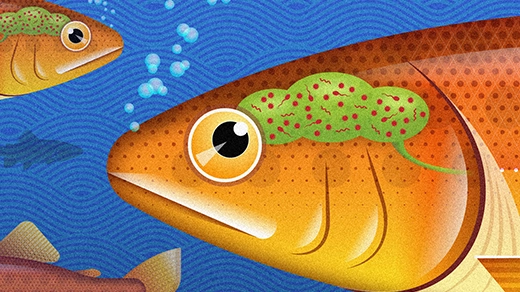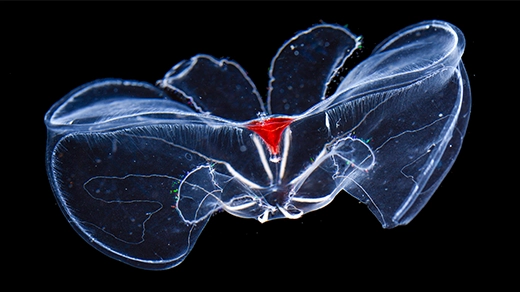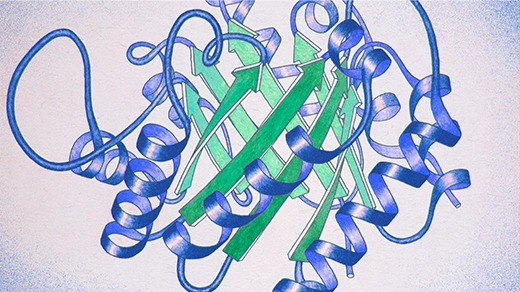Latest Articles
Fish Have a Brain Microbiome. Could Humans Have One Too?
The discovery that other vertebrates have healthy, microbial brains is fueling the still controversial possibility that we might have them as well.
How the Human Brain Contends With the Strangeness of Zero
Zero, which was invented late in history, is special among numbers. New studies are uncovering how the brain creates something out of nothing.
The Cellular Secret to Resisting the Pressure of the Deep Sea
Cell membranes from comb jellies reveal a new kind of adaptation to the deep sea: curvy lipids that conform to an ideal shape under pressure.
How Colorful Ribbon Diagrams Became the Face of Proteins
Proteins are often visualized as cascades of curled ribbons and twisted strings, which both reveal and conceal the mess of atoms that make up these impossibly complex molecules.
What Happens in a Mind That Can’t ‘See’ Mental Images
Neuroscience research into people with aphantasia, who don’t experience mental imagery, is revealing how imagination works and demonstrating the sweeping variety in our subjective experiences.
How AI Revolutionized Protein Science, but Didn’t End It
Three years ago, Google’s AlphaFold pulled off the biggest artificial intelligence breakthrough in science to date, accelerating molecular research and kindling deep questions about why we do science.
Electric ‘Ripples’ in the Resting Brain Tag Memories for Storage
New experiments reveal how the brain chooses which memories to save and add credence to advice about the importance of rest.
New AI Tools Predict How Life’s Building Blocks Assemble
Google DeepMind’s AlphaFold3 and other deep learning algorithms can now predict the shapes of interacting complexes of protein, DNA, RNA and other molecules, better capturing cells’ biological landscapes.
New Cell Atlases Reveal Untold Variety in the Brain and Beyond
Recent efforts to map every cell in the human body have researchers floored by unfathomable diversity, with many thousands of subtly different types of cells in the human brain alone.









